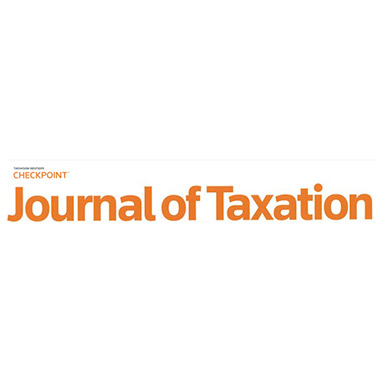If you are considered a United States resident for tax purposes, you will be responsible for certain taxes like any other citizen. However, the IRS determines residency differently than immigration services do.
Whether you will need to pay taxes under a green card or visa typically will depend on how long you have been present in the country. If you are considered domiciled in the U.S., you will need to report your earnings. Fortunately, there are ways of reducing not only your taxable income, but also your estate taxes if you have other assets or trusts.
For a free case assessment with our pre-immigration tax planning lawyers, call McCormick Tax Law today at (215) 630-0861.
How the IRS Determines U.S. Residency for Pre-Immigration Tax Purposes
The criteria for establishing an individual as a U.S. resident for tax purposes do not align precisely with the definition of residency under U.S. immigration laws. For this reason, it is crucial to work with our pre-immigration tax planning attorneys to ensure you are making the right decisions about your taxable finances. The methods used to determine U.S. tax residency for income tax purposes differ considerably from those applied for gift and estate taxes. As a result, a nonresident could qualify as a U.S. resident for income tax purposes without necessarily meeting the requirements for estate and gift tax residency.
Determining U.S. Residency for Income Tax Purposes
To be classified as a U.S. resident for income tax purposes, an individual must be considered a lawful permanent resident by applying for a green card or, in some cases, an EB-5 visa. Alternatively, they can be deemed a U.S. resident under the substantial presence test if they have spent 183 days or more in the United States. Individuals can also choose to be treated as a resident for tax purposes.
The substantial presence test is satisfied when an individual is present in the United States for a minimum of 31 days in the current calendar year, and their total presence amounts to 183 days or more. This total is calculated by adding the actual number of days the individual has spent in the United States during the current year, one-third of their days spent in the country in the previous year, and one-sixth of their days spent in the United States two years prior.
For instance, consider an individual who spent fewer than 122 days in the United States during each of the years 2017, 2018, and 2019. In this case, they would be just below the threshold for 2019 and not classified as a U.S. resident for income tax purposes. Their total days spent in the United States would be calculated as follows: 121 days in 2019, plus 40.33 days, which is one-third of 121 days in 2018, and 20.2 days, which is one-sixth of 121 days in 2017. The combined total comes to 181.53 days, which falls short of the 183-day threshold.
Determining U.S. Residency for Estate and Gift Tax Purposes
In contrast, the residency test is more subjective and revolves around the individual’s “domicile” for estate tax purposes. The determination of a person’s domicile primarily depends on two factors. The first factor is “physical presence,” which means not only being physically present but also demonstrating domestic habitation. The second factor is intent, meaning that the individual must not have any current intention to establish their home in a different location.
Disputes in this area often stem from the subjective “intent” of the domiciliary. Intent can be demonstrated through various objective indicators, including the individual’s green card status or application, the location and relative sizes of their residential properties, the places where they maintain businesses and professional relationships, and the whereabouts of their family members.
How You Can Reduce Your Taxable Income
U.S. residents face taxation on their worldwide income and gains, while nonresidents are not taxed on foreign source income or most gains in the U.S. Thus, before relocating to the United States, a nonresident should think about recognizing foreign income and nontaxable gains ahead of becoming a U.S. tax resident. Also, if they anticipate selling foreign assets with an increased value, they should do so prior to establishing U.S. tax residency, assuming the associated foreign tax is lower than the relevant U.S. tax.
In many cases, the cost basis of highly appreciated assets can be “stepped up” to fair market value through a pre-immigration transaction that has no tax implications in their home country, effectively eliminating any U.S. tax on appreciation prior to the relocation date. It is also worth considering postponing the recognition of losses until U.S. residency is established, which could potentially offset future U.S. taxable income. One approach, for instance, would be to hold onto depreciated assets and sell them after becoming a U.S. resident. Assets acquired in a foreign currency may generate losses when the foreign currency’s value decreases.
For U.S. income tax purposes, an asset’s cost basis is converted to U.S. dollars based on the exchange rate at the time of acquisition, while the profit or loss is calculated using the current exchange rate. If a nonresident planning to move to the U.S. owns one or more businesses abroad, they might need to reorganize those businesses to postpone U.S. taxation on the profits, at least until they are transferred to the U.S., or optimize the amount of taxes from the originating country that can be used as a credit against U.S. taxes for the same earnings. Often, such reorganization can be done through transactions that do not incur tax liabilities in the nation where the business is incorporated.
How You Can Reduce Your Taxable Estate
Prior to obtaining U.S. residency, a non-resident should finalize all tax-exempt gift transfers, either directly or through a trust, to exclude those assets from their U.S. taxable estate and possibly from the U.S. taxable estates of their descendants. For non-residents, gift tax typically applies only to real estate and tangible personal property situated in the U.S. As a result, before relocating to the U.S., the non-resident should execute gift transfers involving properties outside the United States and intangible assets within the country.
Under certain circumstances, nonresidents might have the ability to convert a tangible asset into an intangible one by moving the tangible asset into an entity and gifting the business shares or membership interest. For instance, when a nonresident creator establishes a “grantor trust,” which is a revocable or irrevocable trust that benefits only the nonresident creator and their spouse during the creator’s lifetime, the income produced within the trust, despite being accumulated for the benefit of U.S. beneficiaries, is attributed to the nonresident creator.
U.S. beneficiaries are not subject to taxes on their income, even after receiving their accumulated earnings. In many cases, a nonresident who creates an irrevocable trust and transfers assets to it before relocating to the United States may potentially evade U.S. estate taxes, for multiple generations even. Trusts also offer confidentiality and safeguard assets from a beneficiary’s creditors or a spouse in the event of a divorce.
Our Pre-Immigration Tax Planning Attorneys Can Help
Reach out to McCormick Tax Law today at (215) 630-0861 for a free review of your case with our pre-immigration tax planning attorneys.










